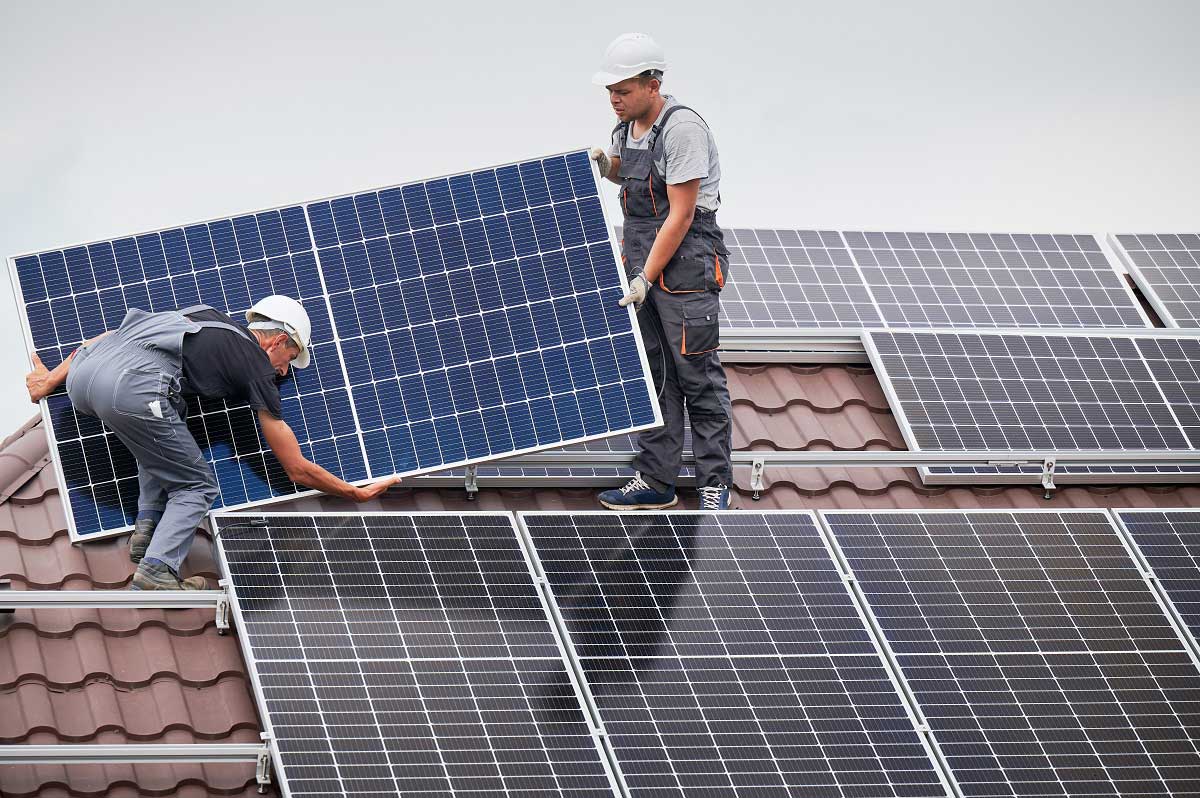Despite not having a strong history in supporting renewable energy, Kansas offers some incentives for homeowners considering the switch to solar power. The state's Renewable Portfolio Standard (RPS) law, which set a goal that 20% of a utility's peak electricity demand be generated from renewable energy resources by 2020, was repealed in 2015. This was replaced with a voluntary goal for renewable adoption, marking a shift in the state's approach to renewable energy.
Explore our comprehensive guide to solar incentives and programs in Kansas. From the Federal Solar Investment Tax Credit to net metering and property tax exemptions, we provide detailed information on how to make solar energy more affordable. Learn how to apply for Kansas solar incentives and start your journey towards sustainable and cost-efficient energy today.
Federal Solar Investment Tax Credit
The most significant incentive for going solar in Kansas comes from the federal government. The federal solar investment tax credit is a program that can significantly decrease the cost of your solar installation. As of 2023, if you install your photovoltaic system before the end of 2032, the federal tax credit is 30% of the cost of your solar panel system. This is 30% off the entire cost of the system, including equipment, labor, and permitting. For example, if your solar energy system costs $20,000, your federal solar tax credit would be $20,000 x 30% = $6,000.
Net Energy Metering In Kansas
Kansas Solar Incentives include net metering, a practice that allows homeowners to sell surplus solar energy back to the grid. However, it's important to note that the rate at which utilities purchase this excess energy in Kansas is lower than the retail rate. According to current Kansas law, if a customer generates more kilowatt-hours (kWh) than they use in a month, they’ll be paid for the excess energy at the utility’s “system average cost” or wholesale rate. This is about 2.1 cents per kWh, compared to 11.3 cents/kWh retail, indicating that the return on excess energy is not as high as in some other states.
Property Tax Exemption For Solar Installations
Kansas offers a property tax exemption for the added value that a solar installation brings to your home. This incentive doesn't save money upfront, but over the long haul, it can result in significant savings. With this exemption in place, you won’t have to pay a single extra penny in property taxes for the home value increase caused by installing a solar power system.
The Affordability Of Solar In Kansas
The cost of solar conversion in Kansas aligns closely with the national average, with the typical upfront cost for solar conversion in the Kansas area standing at around $23,310. This number is based on the average cost per watt for solar equipment ($2.59 in Kansas) and the average solar system size (9 kilowatts or kW) required to offset typical utility bills in the area. Even though the cost can seem high, the available incentives can help make solar more affordable for Kansas homeowners.
To take advantage of the solar incentives and programs in Kansas, there are specific steps that you need to follow:
Federal Solar Investment Tax Credit (ITC)
This is a federal tax credit that will provide the most significant savings for going solar in Kansas. It allows you to deduct 30% of the cost of installing a solar energy system from your federal taxes if installed before the end of 2032. This includes both residential and commercial systems, and there is no cap on its value. To apply for this credit, you need to install a solar panel system and then claim the credit when filing your federal tax return for the year. Specifically, you will need to fill out IRS Form 5695, "Residential Energy Credits," and include the result on your 1040 individual tax return. It's advisable to consult with a tax professional to make sure this is done correctly12.
Net Energy Metering
This program allows residential and commercial customers who generate their own electricity from solar power to feed electricity they do not use back into the grid. Utilities are required to monitor how much energy your solar power system produces and how much energy you actually consume and make sure you get credit for the surplus. In Kansas, if you generate more kilowatt-hours (kWh) than you use in a month, you’ll be paid for the excess energy at the utility’s “system average cost” (wholesale rate). To participate in this program, you need to have a meter installed that can measure the energy you generate and use. This is typically handled by your solar installer and the utility company.
Property Tax Exemption
Kansas offers a property tax exemption for the added home value from your solar installation. This means that installing a solar power system won't increase your property taxes. You need to apply for this exemption, and the process varies by locality. It's best to check with your local tax assessor's office or a local solar installer for details on this process.
The Future Of Kansas Solar Incentives
While Kansas does not currently offer any solar rebates, the existing Kansas solar incentives still provide homeowners with opportunities to make solar energy a viable and affordable option. Looking to the future, there is the possibility that further incentives could be introduced, but for now, homeowners can rely on the federal solar investment tax credit, net energy metering, and the property tax exemption to help offset the cost of transitioning to solar power. While these incentives can make solar more affordable, the up-front cost for solar conversion in the Kansas area is around $23,310, which is about average compared to the national average. While these incentives help, the cost can still be prohibitively expensive for many homeowners.
You may also be able to avail free solar panels from the government. Learn more by visiting Gov Relations and checking out our guide.







